Resources
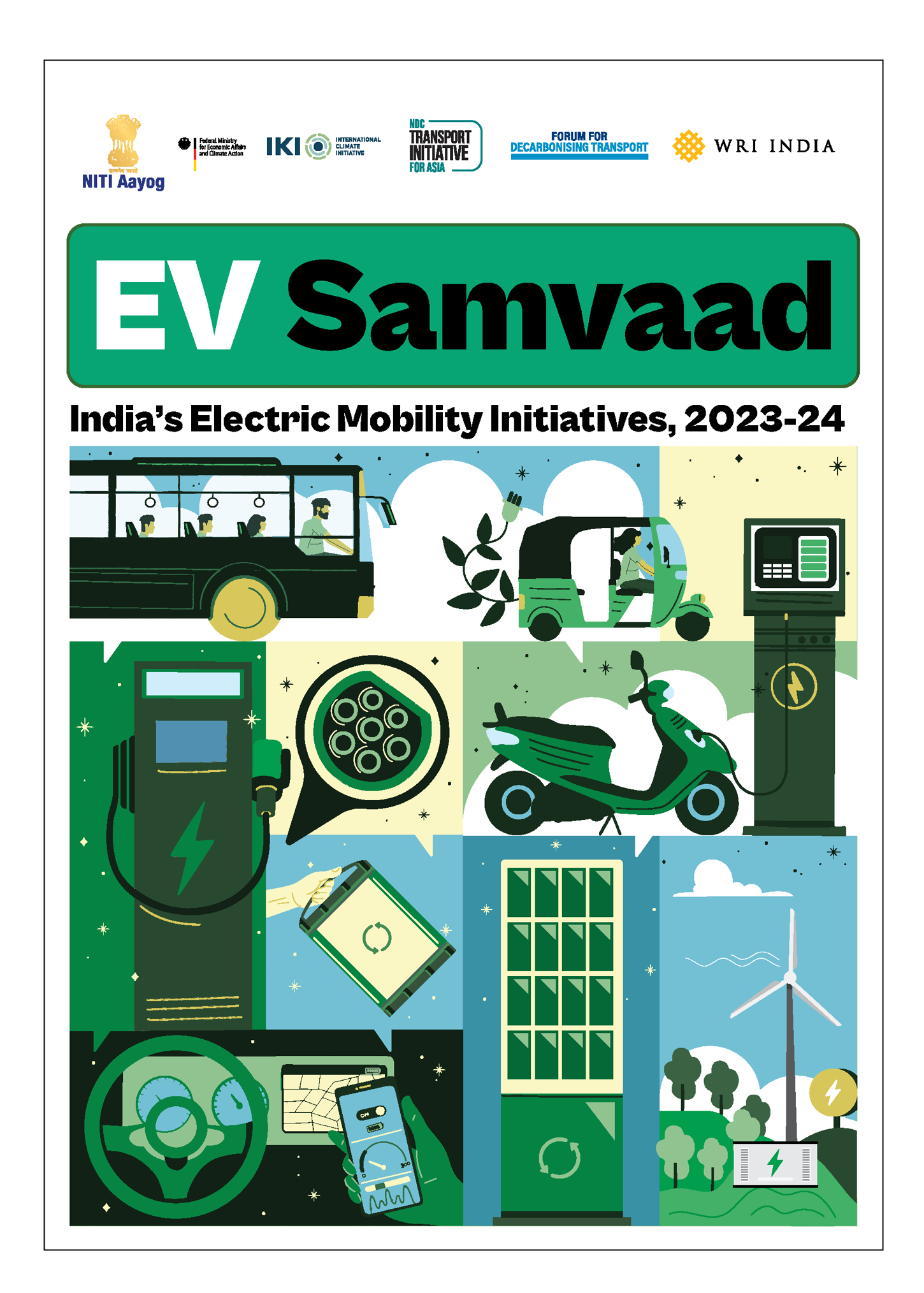
EV Samvaad: India’s Electric Mobility Initiatives, 2023-24
EV Samvaad is a compendium of electric mobility initiatives in India, covering the period from April 2023 to March 2024. It aims to monitor India’s electric vehicle (EV) landscape and decode policy interventions, implementation roadmaps, and industry-wide adoption plans.
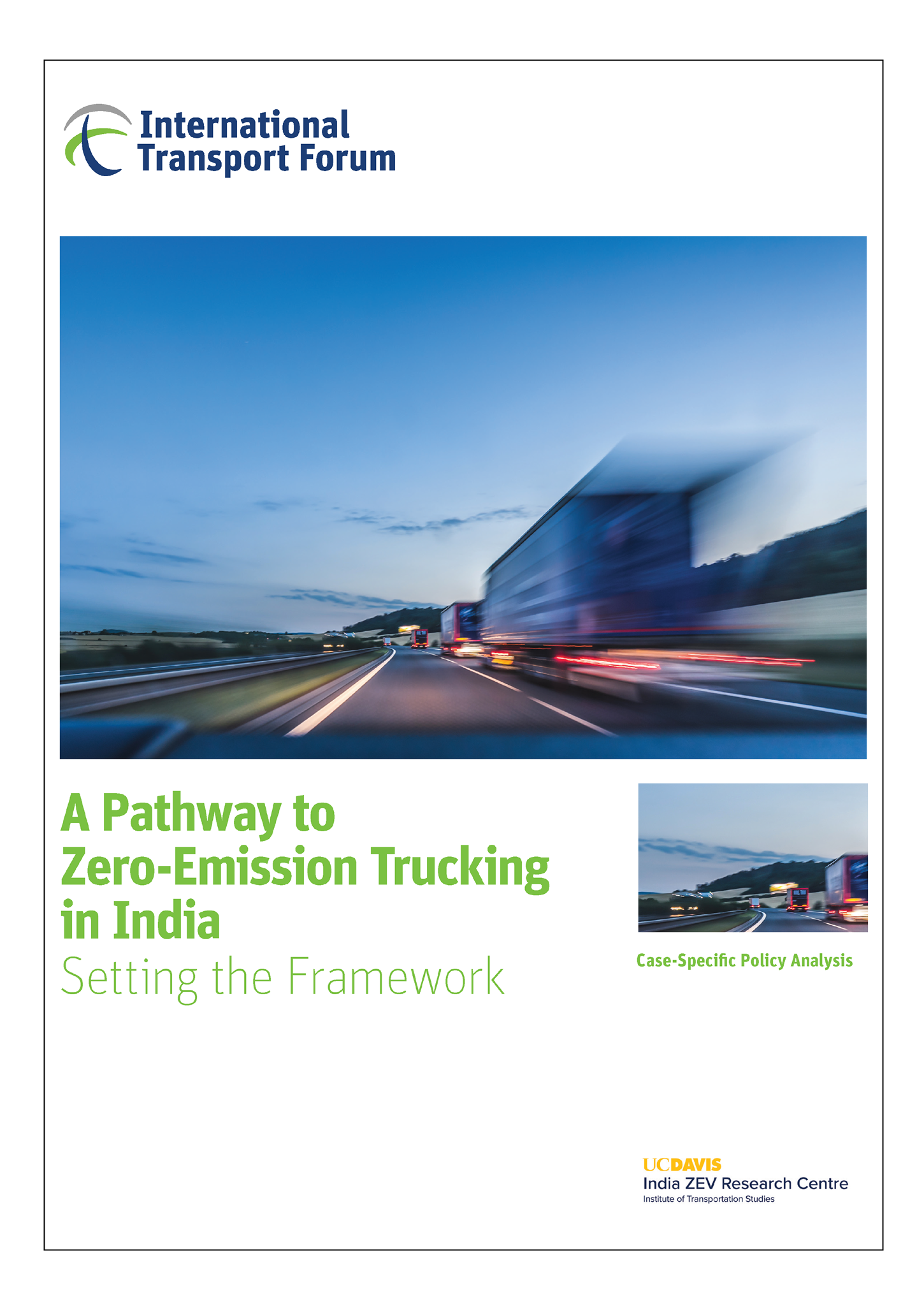
A Pathway to Zero-Emission Trucking in India: Setting the Framework
This report assesses the potential of decarbonising heavy-duty trucks in India with zero-emission technologies, focusing on battery-electric technology. It presents a four-pillared roadmap for a transition to zero-emission trucks that addresses technology, infrastructure and operations, financing, and policy interventions for India.
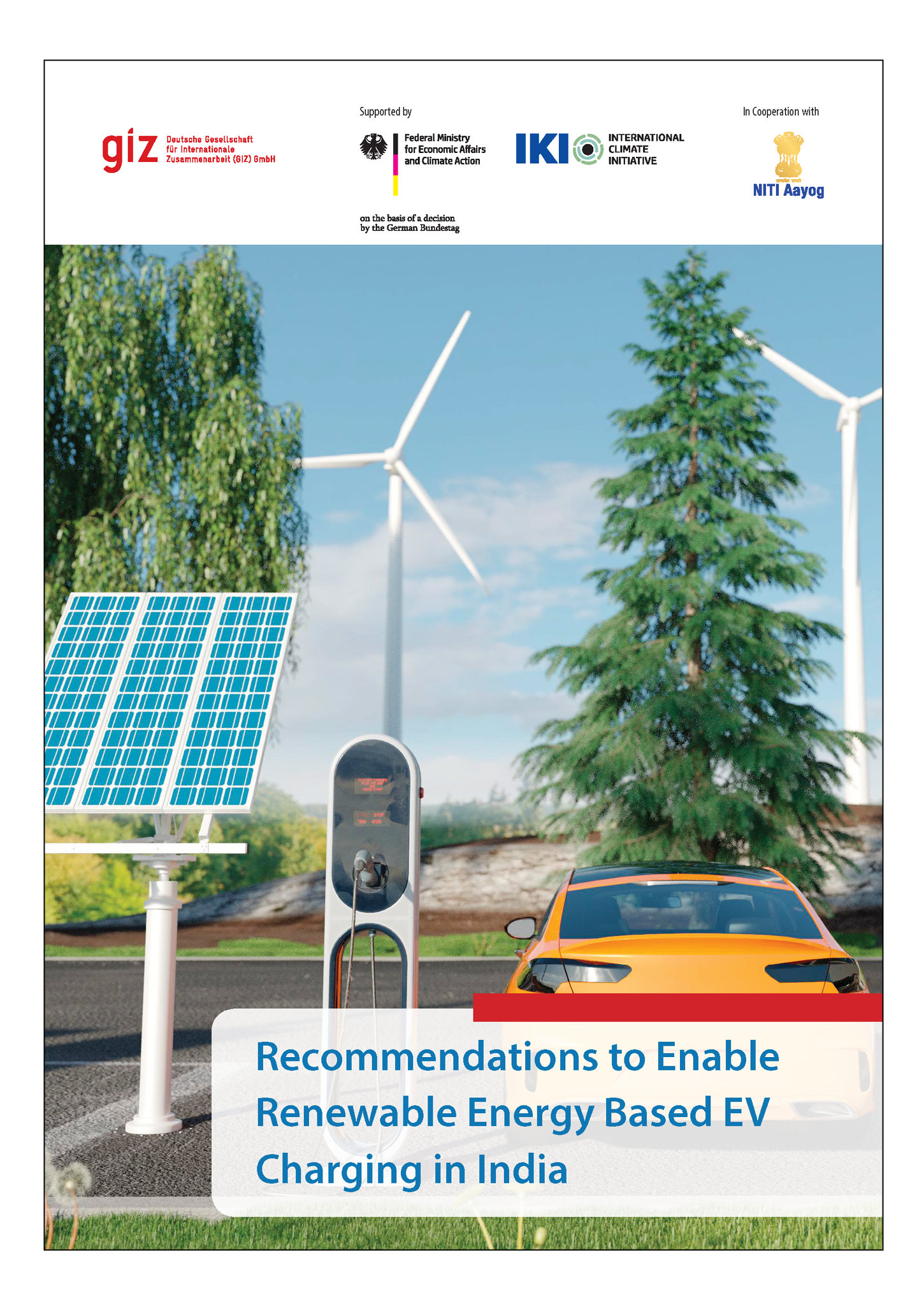
Recommendations to Enable Renewable Energy Based EV Charging in India
This report sets the context of renewables (RE)—based EV charging, its need in India, concerned stakeholders, modes of RE procurement, and locations for RE-based EV charging in different businesses.
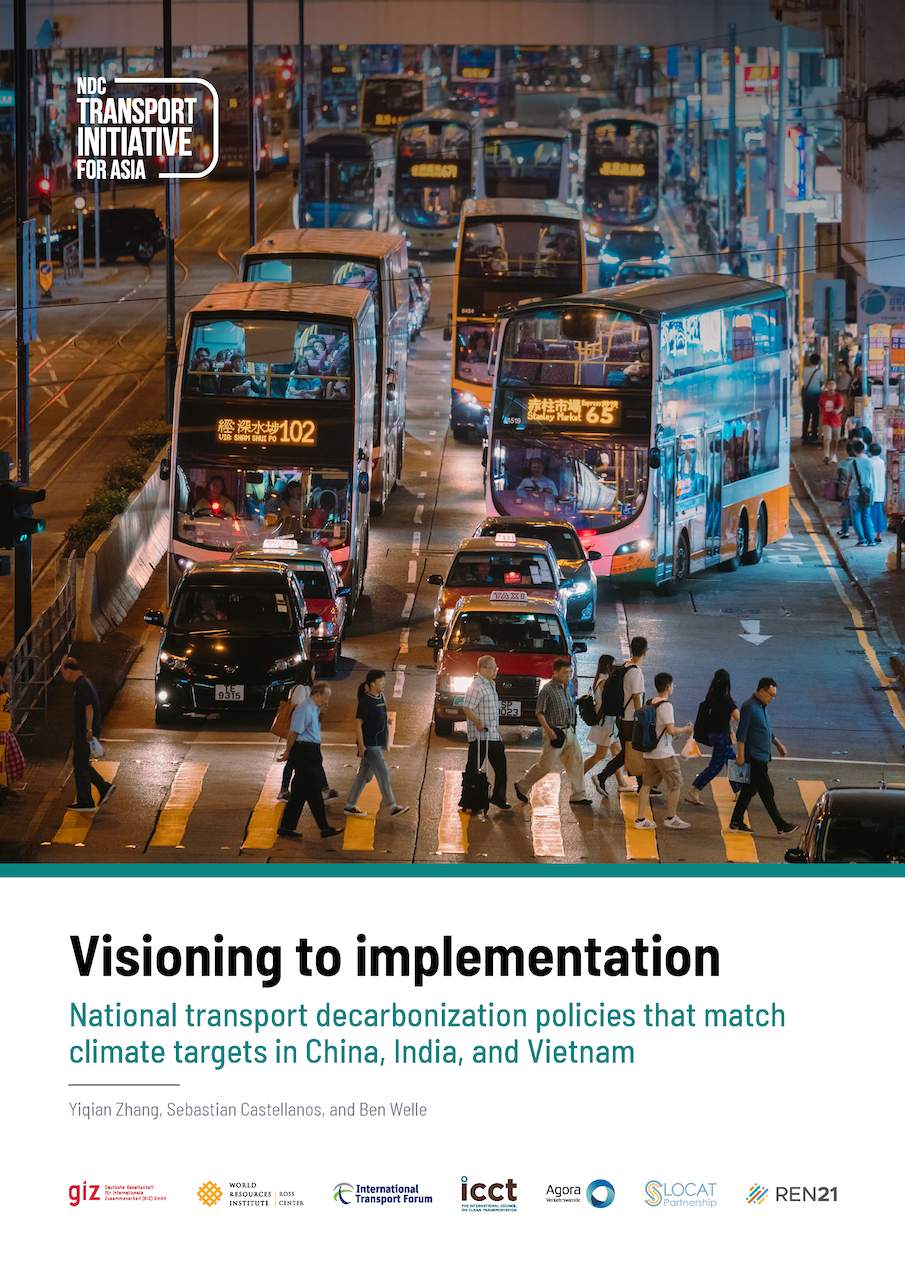
Visioning to Implementation: Transport Decarbonization Policies that Match National Climate Targets in China, India, and Vietnam
This new report assesses how China, India and Vietnam are translating their international climate ambition into national climate change-related transport strategies and policies.
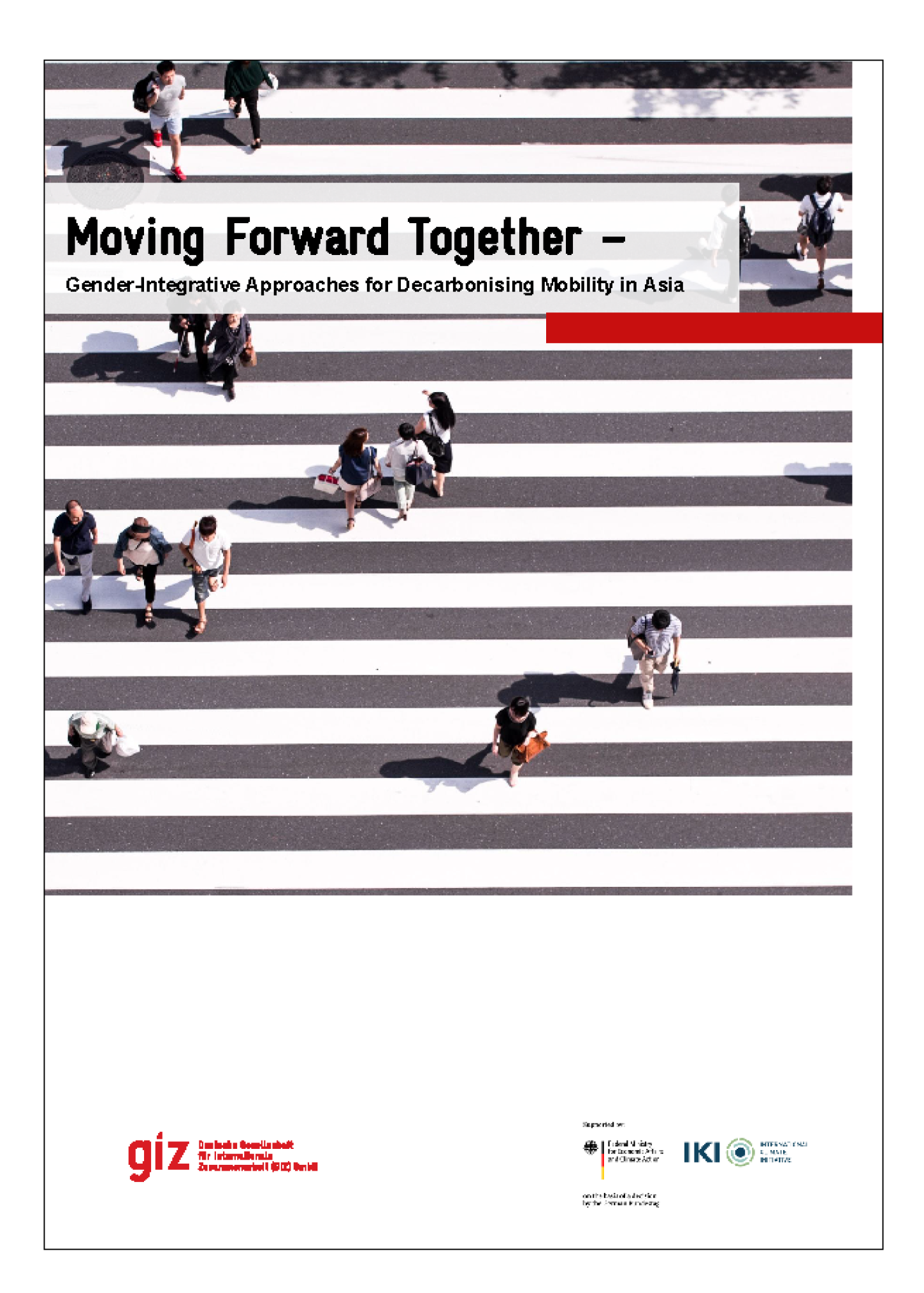
Moving Forward Together - Gender-Integrative Approaches for Decarbonising Mobility in Asia
This paper explores the role which women and gender-specific mobility behaviour play in the decarbonisation of the transport sector in Asia, based on a comparative analysis of inclusive low-carbon transport, related challenges and gender-integrative solutions in China, India and Vietnam.
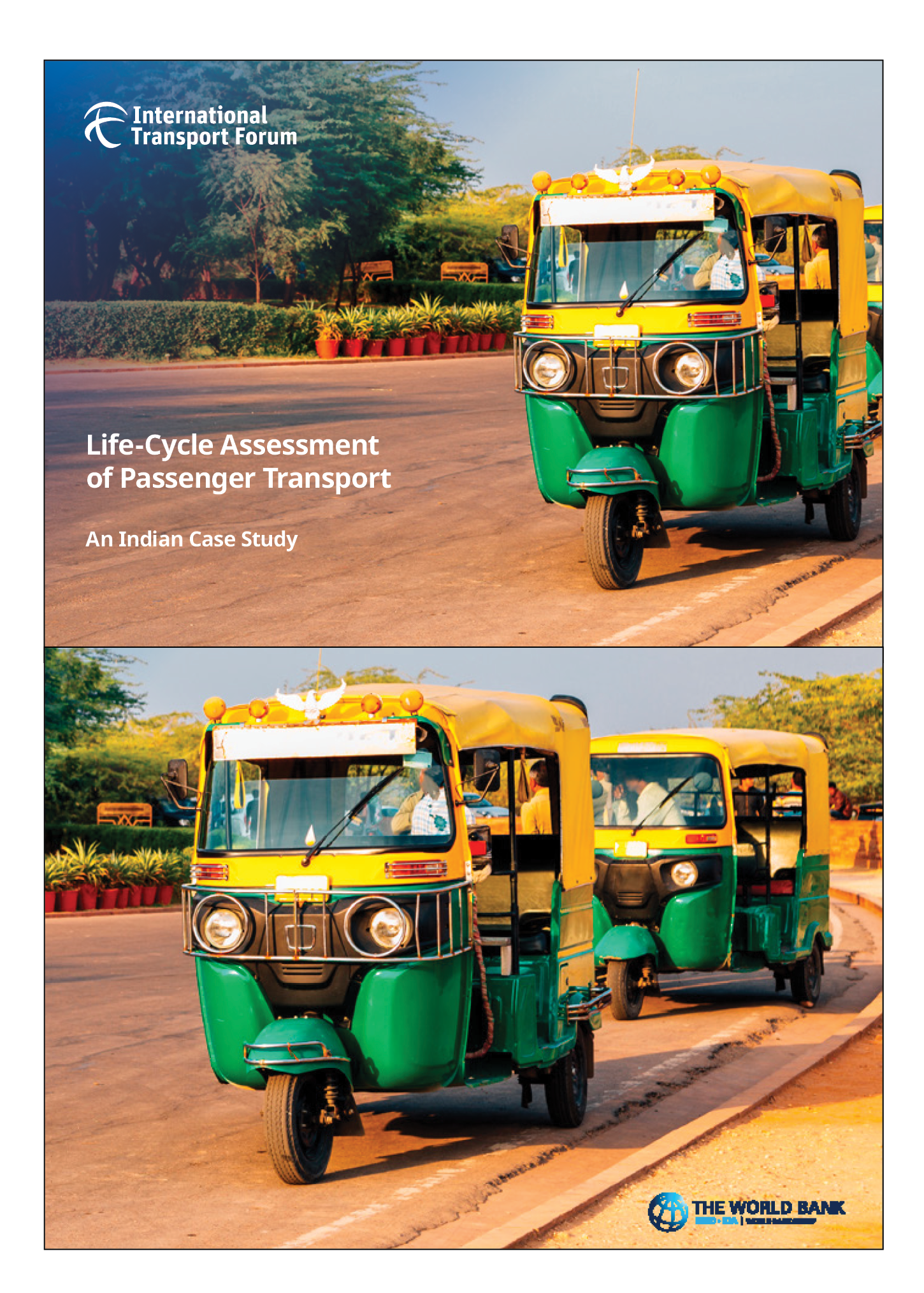
Life-Cycle Assessment of Passenger Transport: An Indian Case Study
The report is the first comprehensive, India-specific analysis of urban passenger transport using a life-cycle perspective.
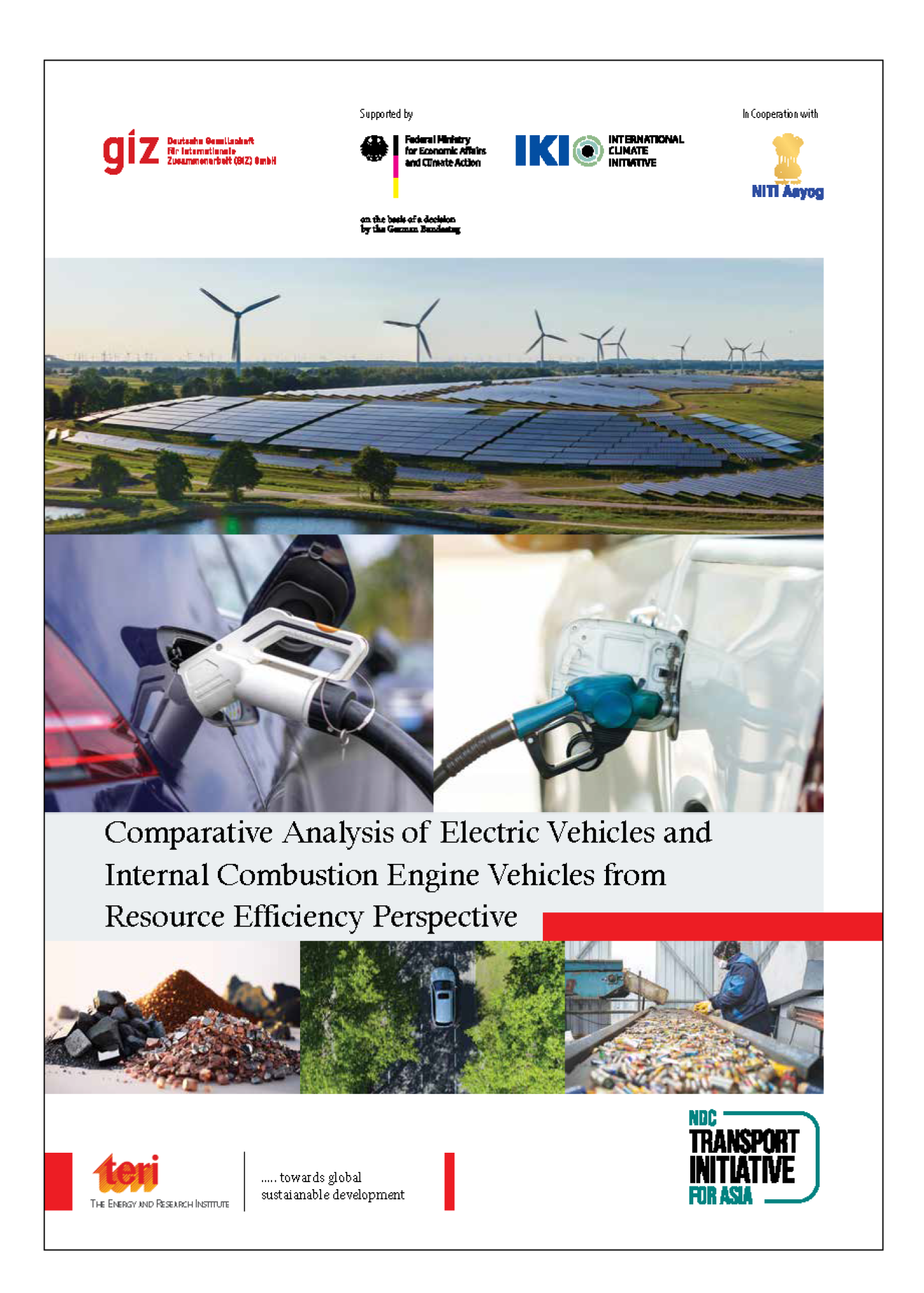
Comparative Analysis of EVs and ICEVs from Resource Efficiency Perspective
This research publication conducts a detailed comparative analysis to assess various environmental performance of EV’s and ICEV’s (petrol, diesel and CNG) in the 3-Wheeler and 4-Wheeler vehicle segment across its entire life cycle. The study has been analysed using India-specific conditions.
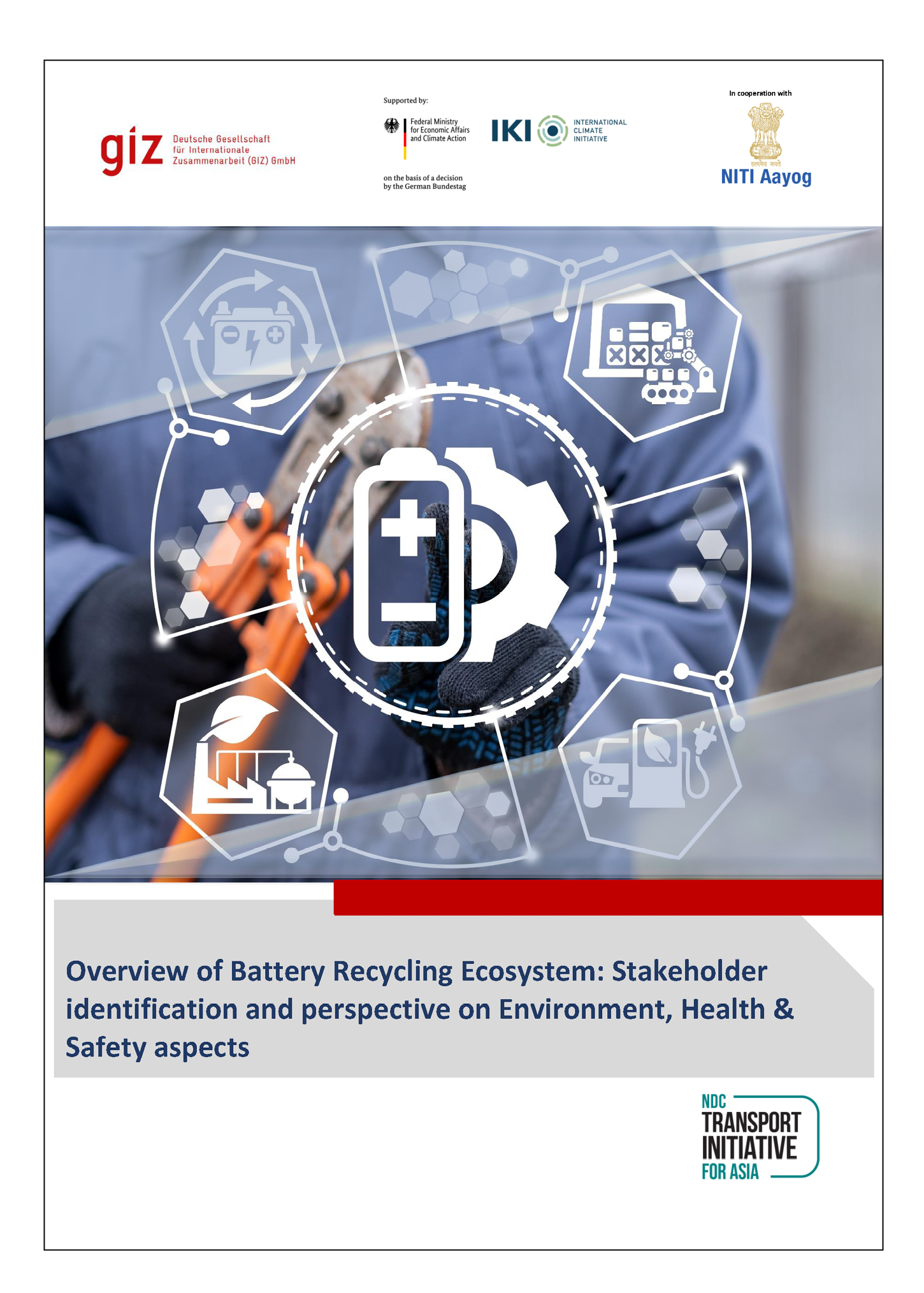
Overview of Battery Recycling Ecosystem: Stakeholder identification and perspective on Environment, Health & Safety aspects
The report serves as a guiding document for the new entities in the battery recycling ecosystem, identifying various stakeholders and their corresponding roles and responsibilities. For these stakeholders, the report discusses permissions required for setting up battery recycling/refurbishing facilities, risks and corresponding mitigation measures, and standard operating procedures for safe handling of batteries.
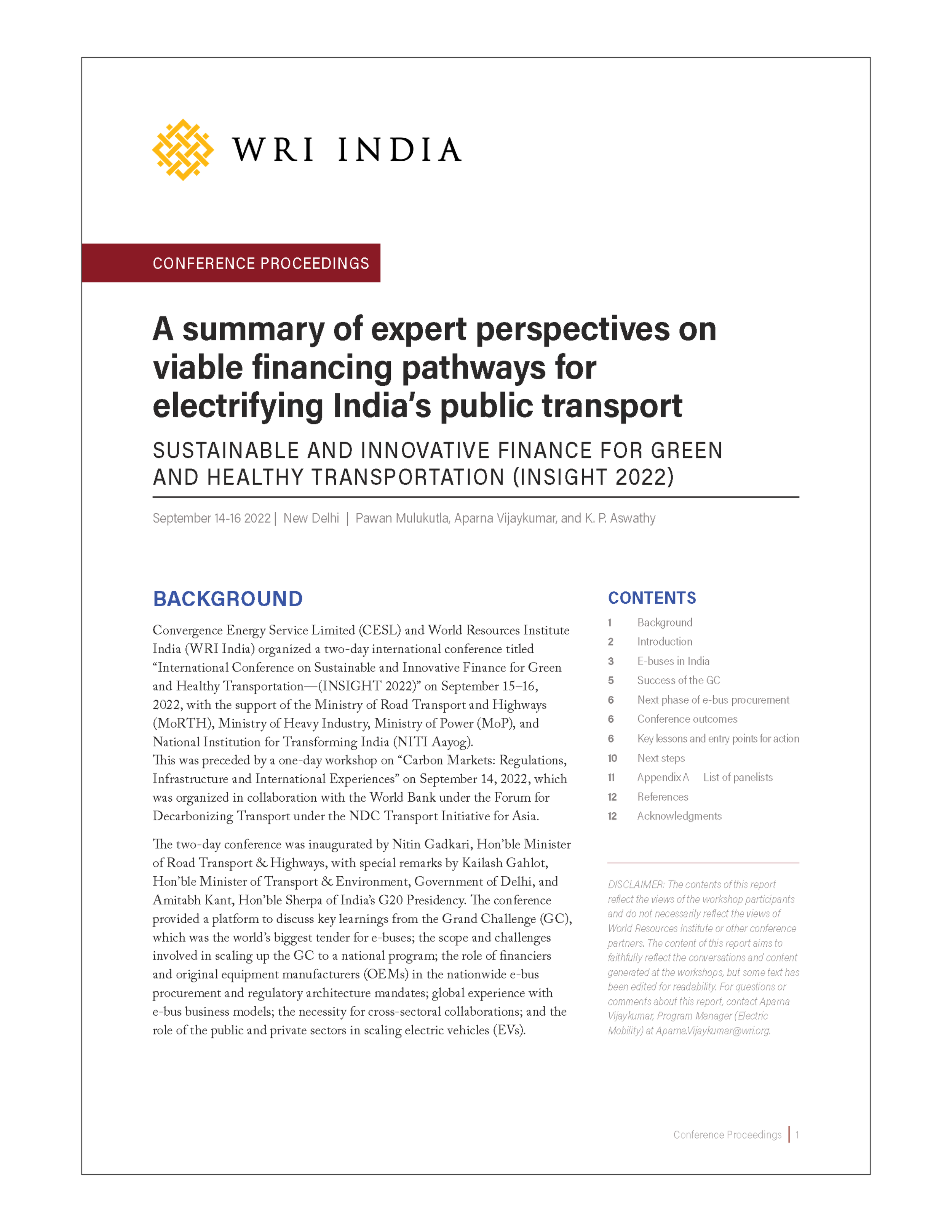
A Summary of Expert Perspectives on Viable Financing Pathways for Electrifying India’s Public Transport
The publication reflects the recommendations shared by stakeholders for scaling up the adoption of electric buses in India. The panel discussions explored viable financing pathways for the procurement of e-buses in India.
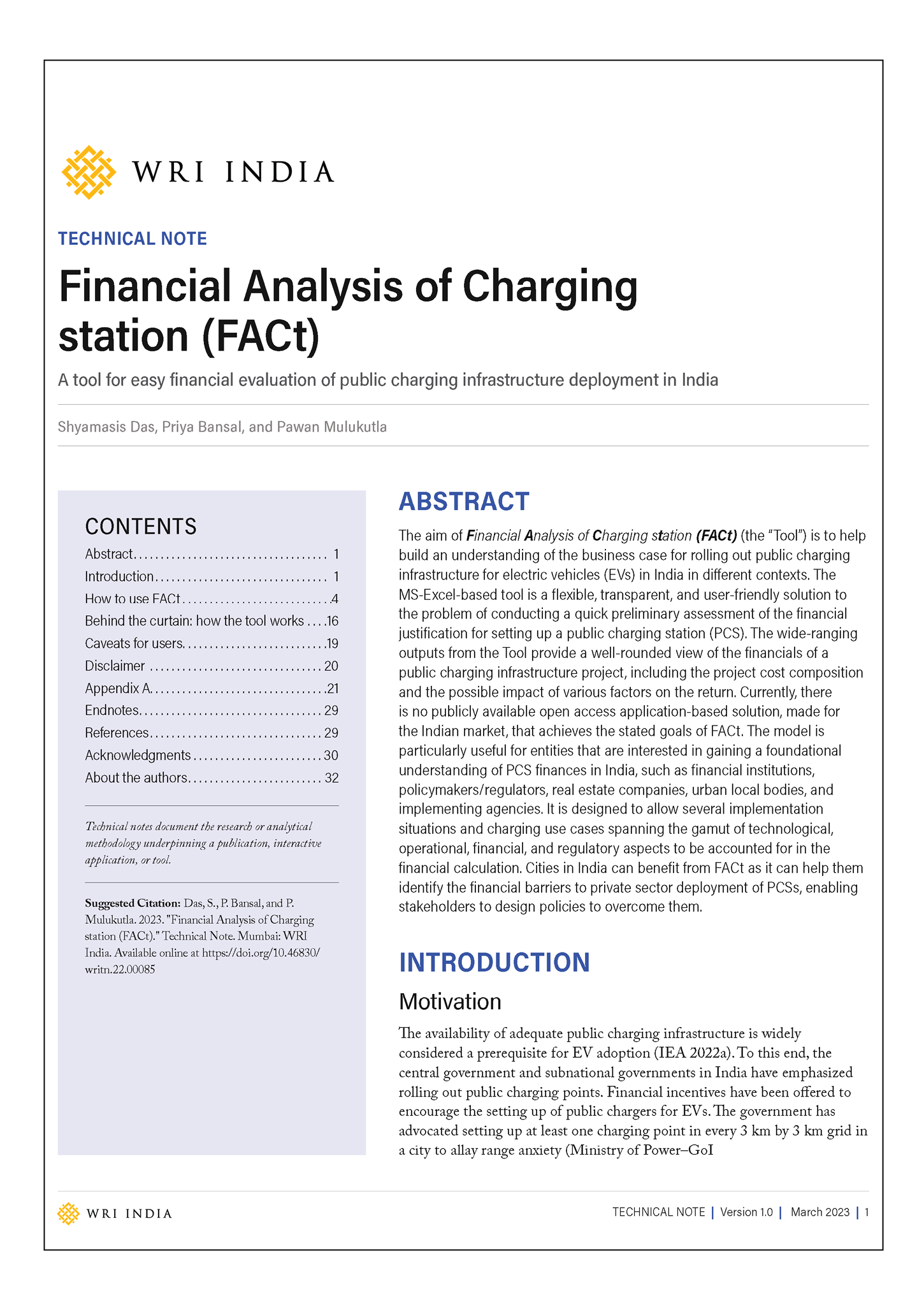
Financial Analysis of Charging station (FACt) - A tool for easy financial evaluation of public charging infrastructure deployment in India
The Microsoft-Excel-based tool ‘Financial Analysis of Charging station (FACt)’ has been developed to help build an understanding of the business case for rolling out public charging infrastructure for electric vehicles (EVs) in the Indian context. It is a flexible, transparent, and user-friendly solution to the problem of conducting a quick preliminary assessment of the financial justification for setting up a public charging station.
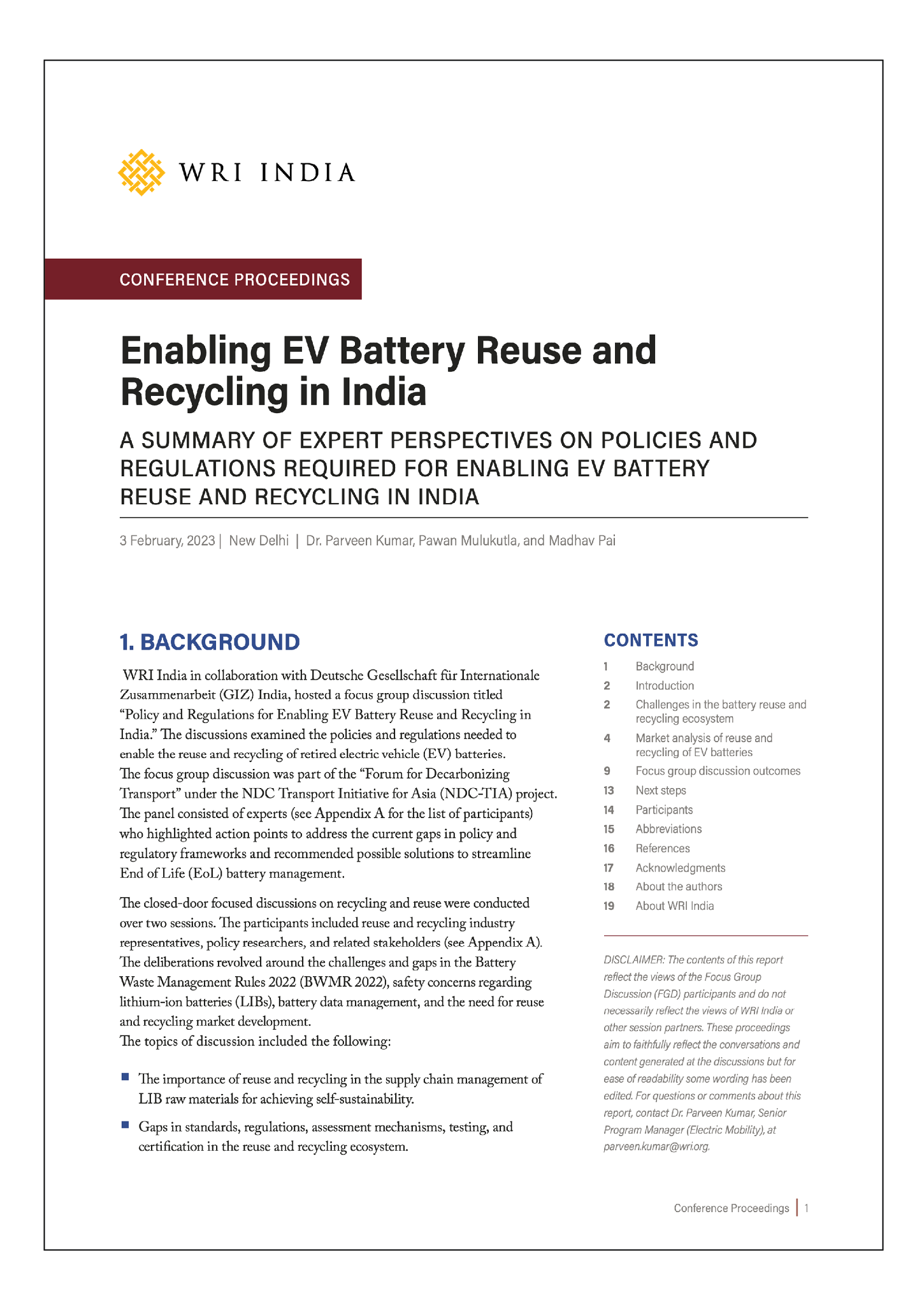
Policy and Regulations for Enabling EV Battery Reuse and Recycling in India
The conference proceeding includes recommendations from subject experts on the Battery Waste Management Rules 2022 and possible solutions to streamline End of Life (EoL) battery management. It also highlights the safety concerns regarding lithium-ion batteries and battery data management.
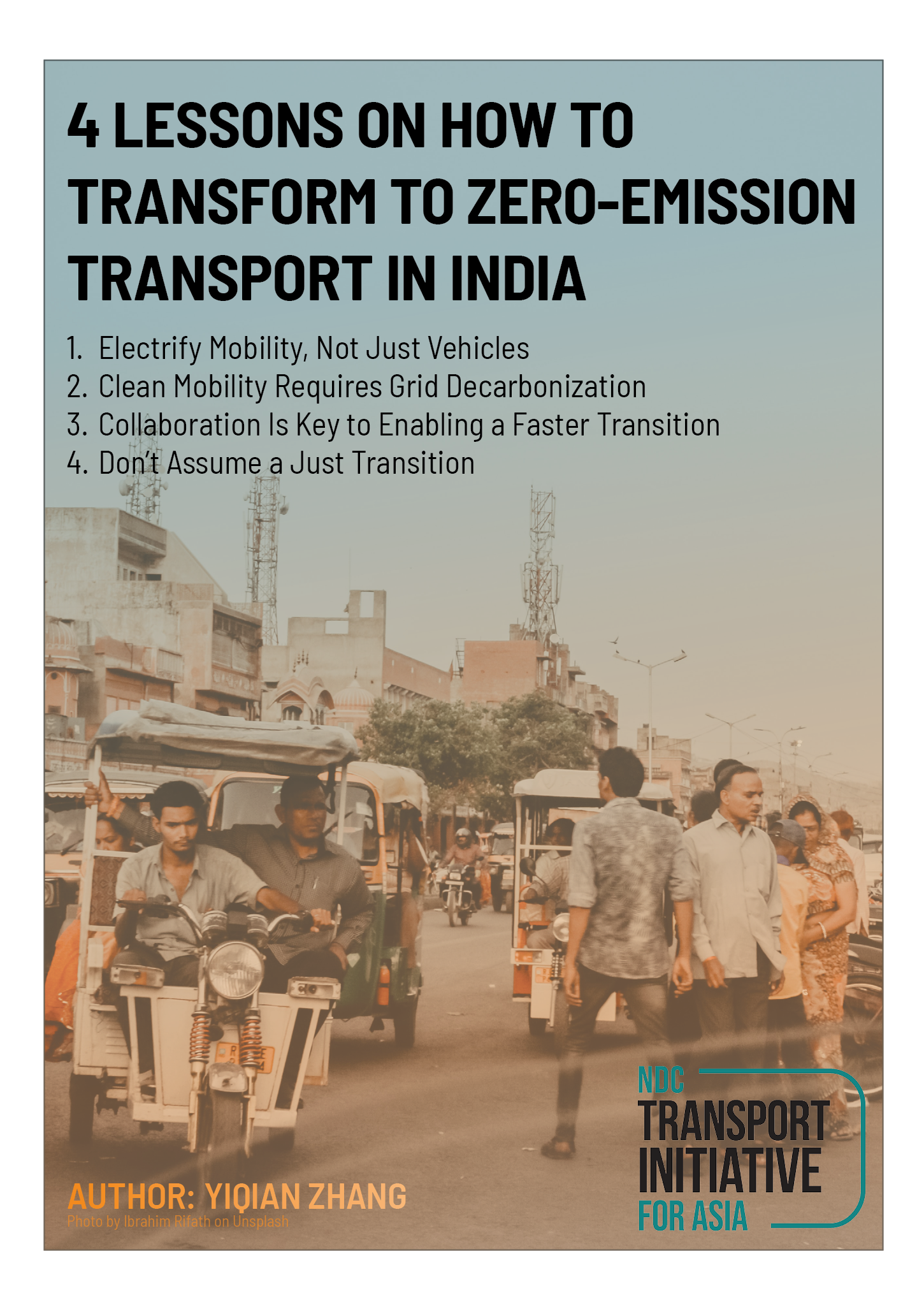
BLOG: 4 Lessons on How to Transform to Zero-Emission Transport in India
Based on interviews with NDC-TIA partners and other organizations working in India, this blog highlights the four lessons on accelerate the transition to zero-emission transport in India.
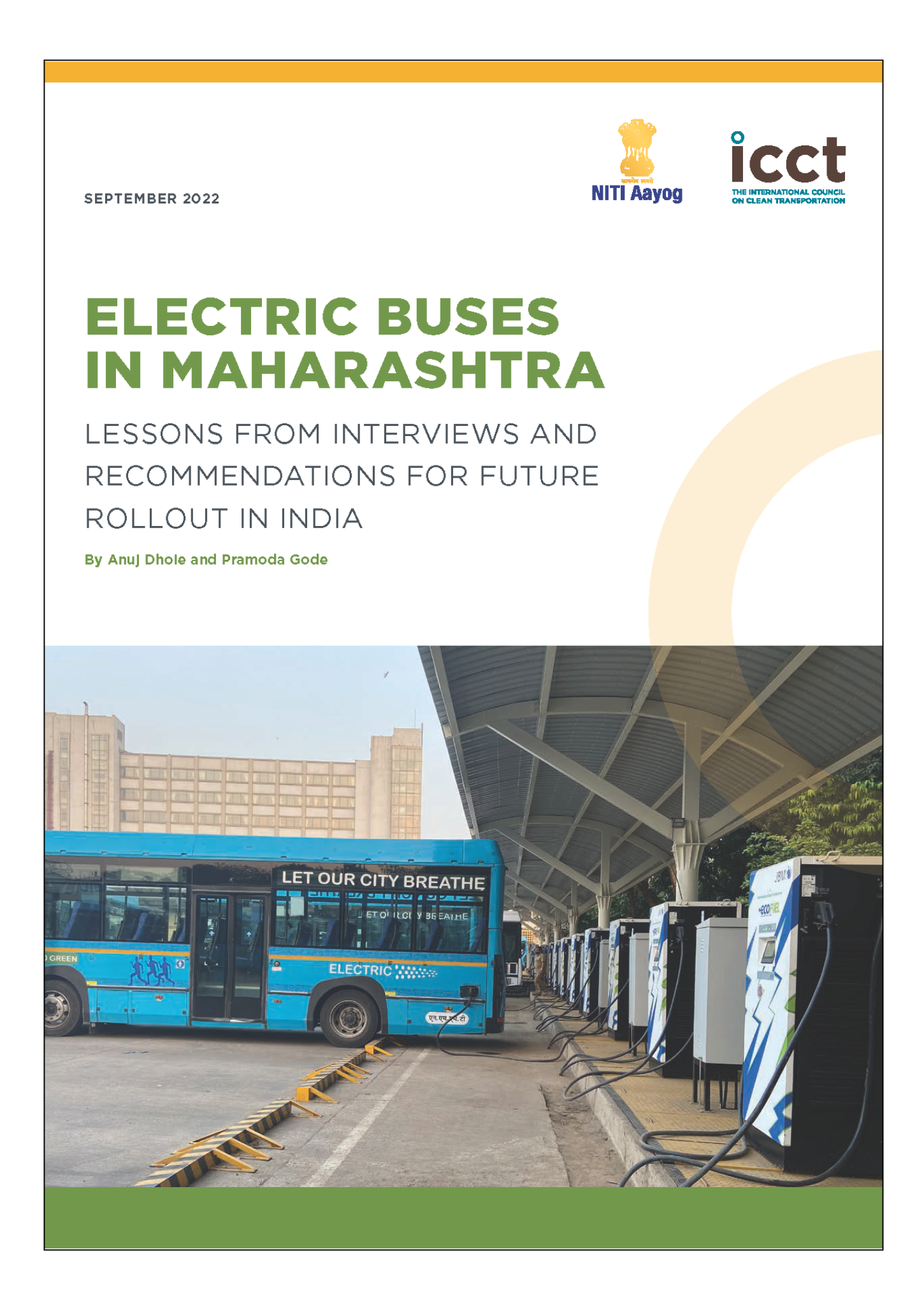
Electric buses in Maharashtra: Lessons from interviews and recommendations for future rollout in India
With information from interviews with 21 representatives from transit authorities and private bus operators, this report identifies key experiences and lessons from the electric bus rollouts in Mumbai, Pune, and Navi Mumbai and make specific recommendations based on international best practices.
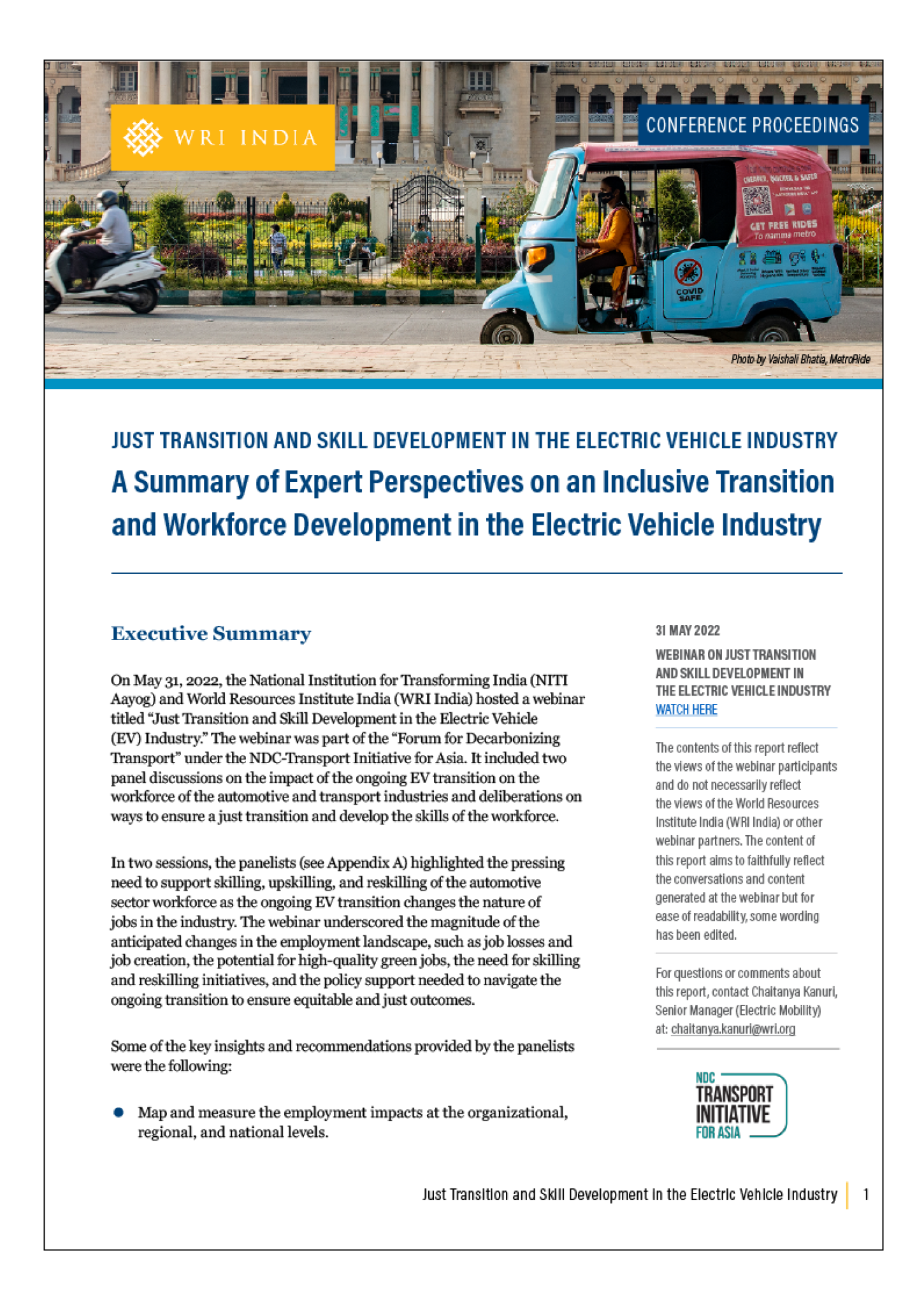
Conference Proceedings: Just Transition and Skill Development in the Electric Vehicle Industry
The conference proceeding document reflects the views of the stakeholders (public and private) on the impact of the ongoing EV transition on the workforce of the automotive and transport industries and ways to ensure a just transition. The ‘Just Transition’ conference is hosted under the Forum for Decarbonising Transport.
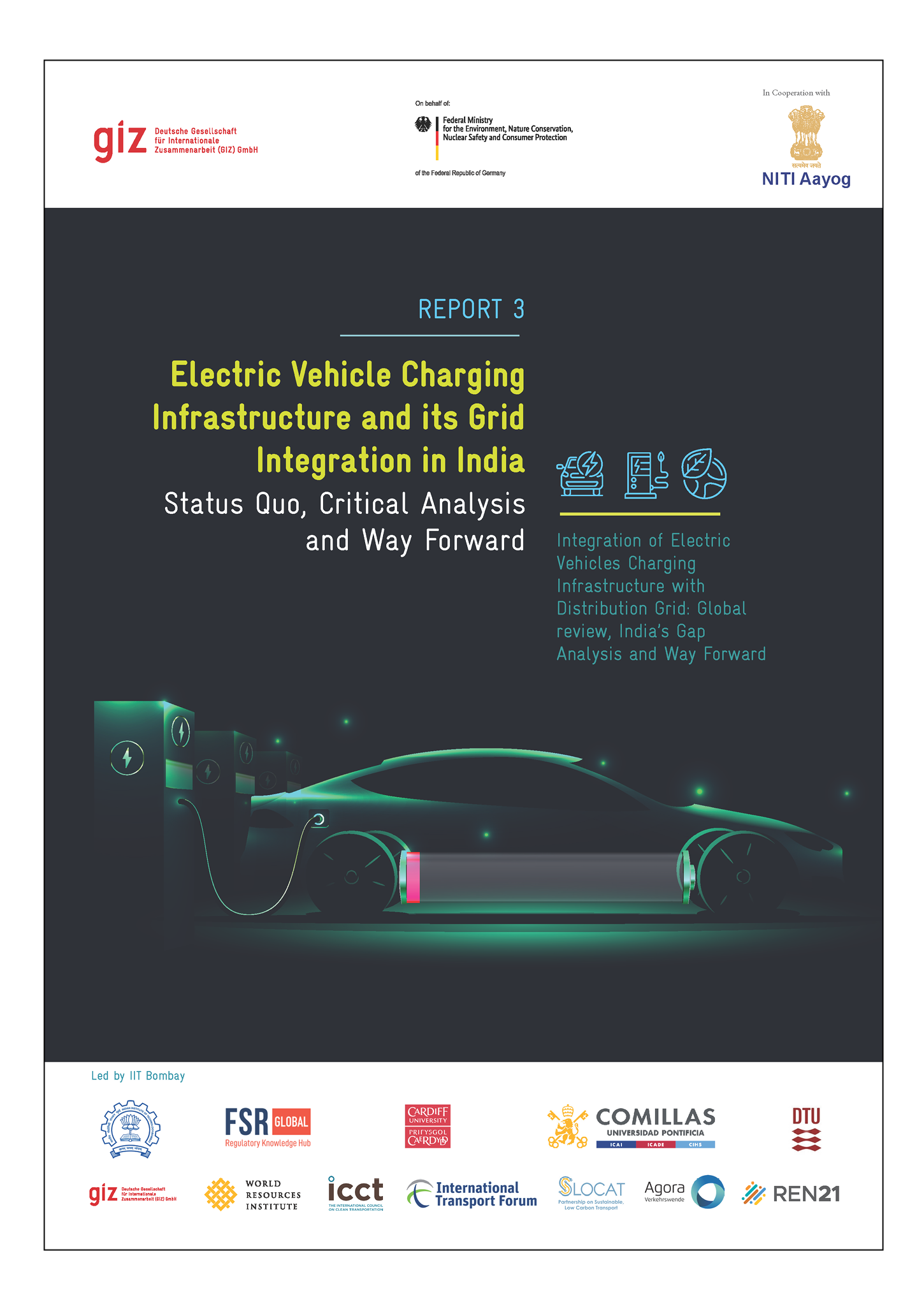
Integration of Electric Vehicles Charging Infrastructure with Distribution Grid: Global Review, India’s Gap Analyses and Way Forward
This specific report is the third report in a series and it focuses on detailed documentation and analysis of EV charging infrastructure and its grid integration in Indian EV ecosystem.
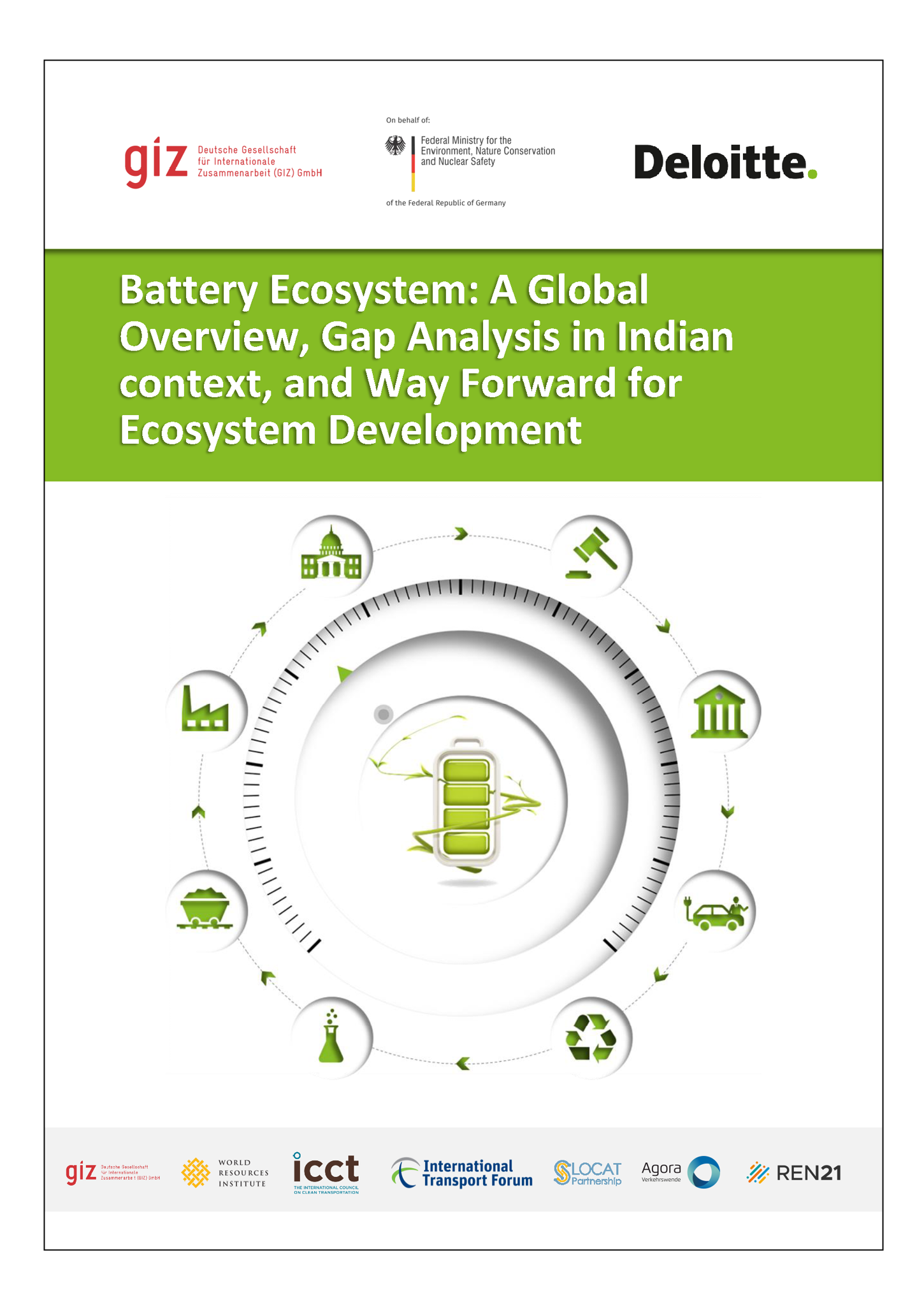
Battery Ecosystem: A Global Overview, Gap Analysis in Indian Context, and Way forward for Ecosystem Development
This report investigates the complete value chain of motive/traction batteries used in electric vehicle applications.
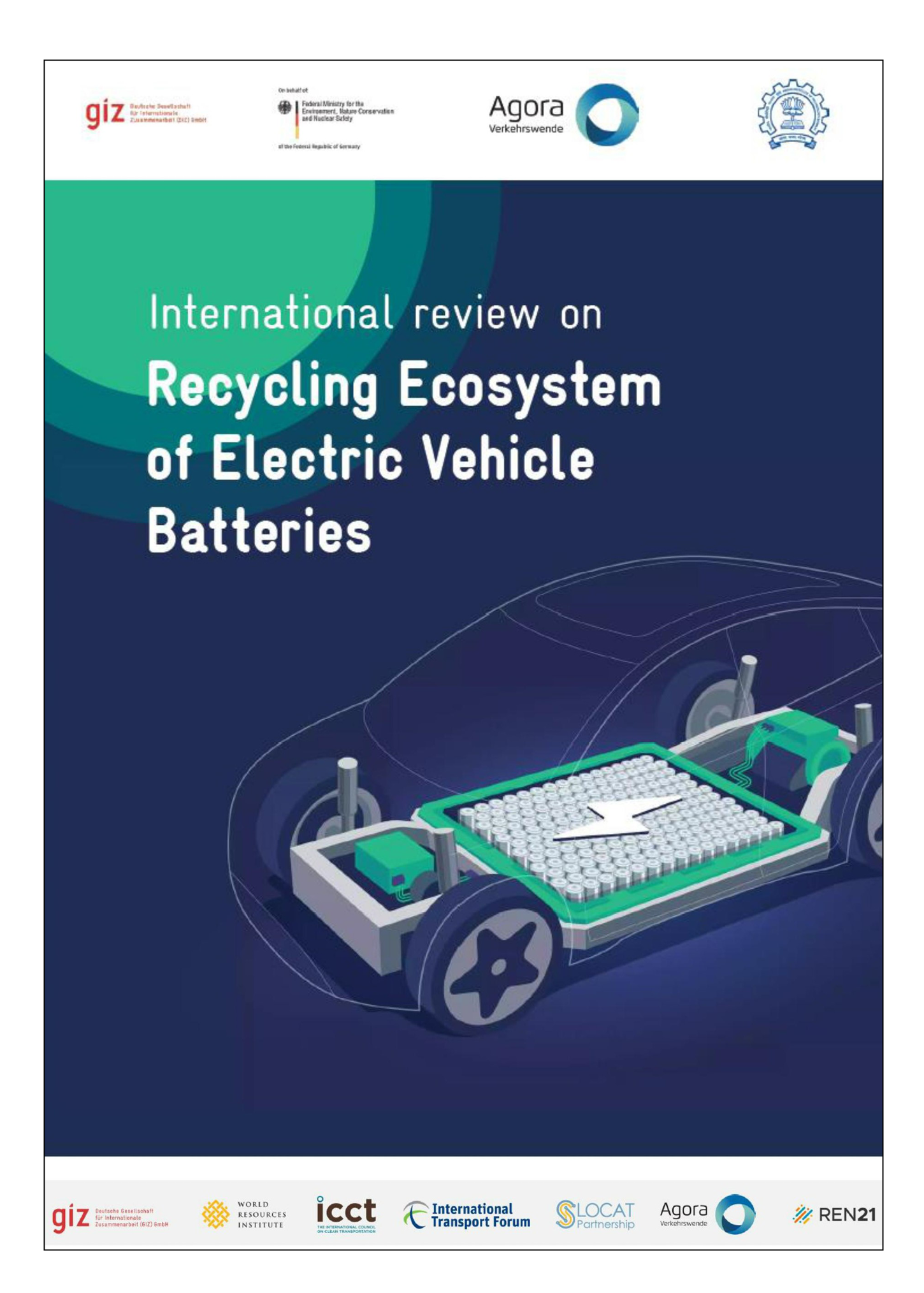
International review on Recycling Ecosystem of Electric Vehicle Batteries
This study focuses on the recycling ecosystem of batteries, conducting international review of Germany and rest of EU, California (US), China, Japan and South Africa.
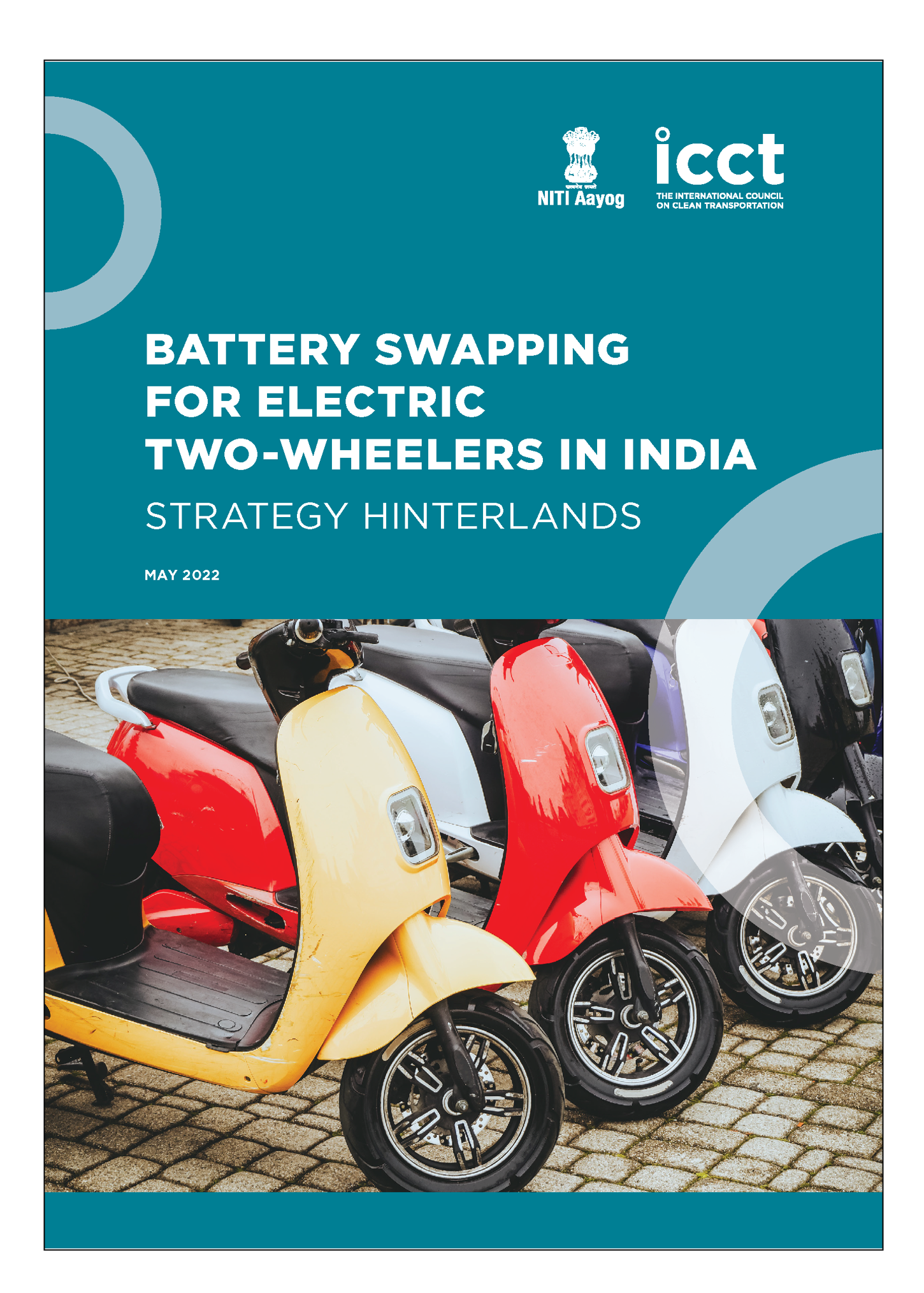
Battery Swapping for Electric Two-Wheelers in India: Strategy Hinterlands
The report on “Battery Swapping for Electric Two-Wheelers in India – Strategy Hinterlands” identifies solutions to battery swapping application on two-wheelers to aid in India’s EV transition.
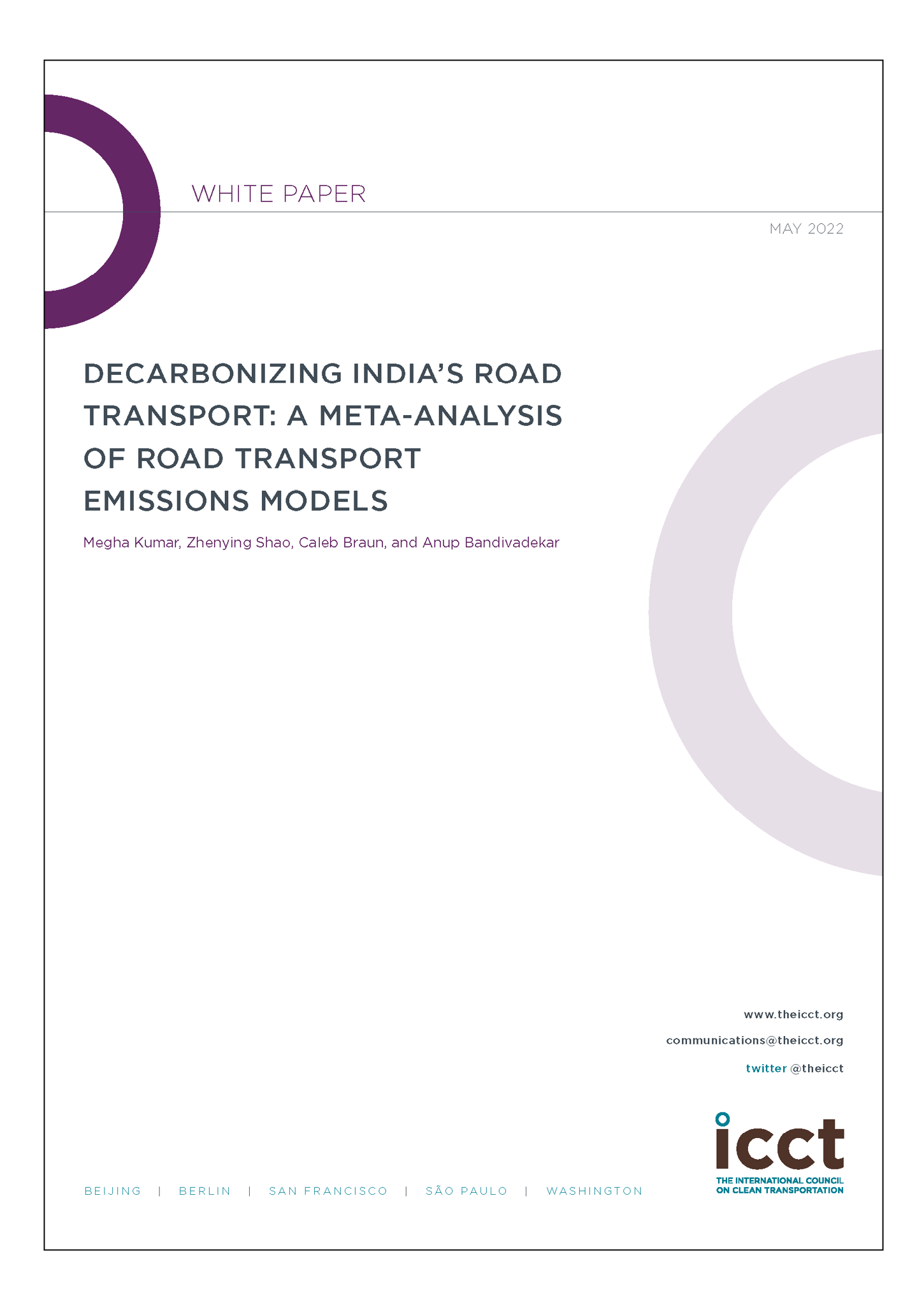
Decarbonizing India’s road transport: A meta-analysis of road transport emissions models
This paper compares key assumptions, energy use, and CO2 emissions by vehicle and fuel type across eight road transport energy and emissions models for India.
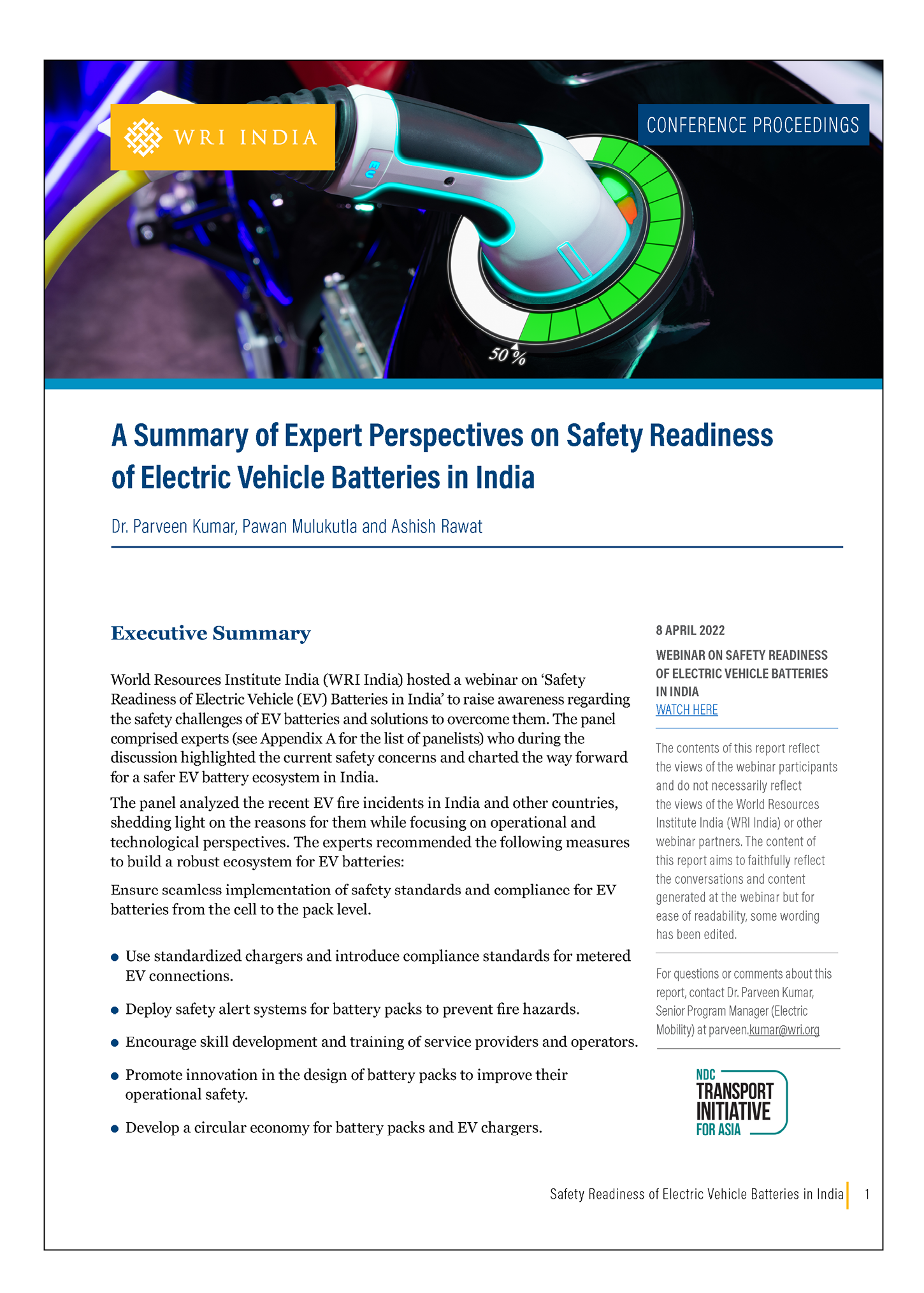
Conference Proceedings: A Summary of Expert Perspectives on Safety Readiness of Electric Vehicle Batteries in India
World Resources Institute India (WRI India) hosted a webinar on ‘Safety Readiness of Electric Vehicle (EV) Batteries in India’ to raise awareness regarding the safety challenges of EV batteries and solutions to overcome them. This document highlights the insights shared by the panelists on the current safety concerns and the way forward for a safer EV battery ecosystem in India.
